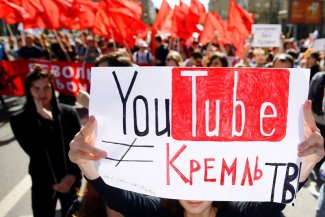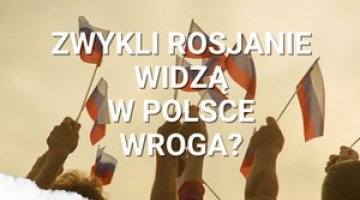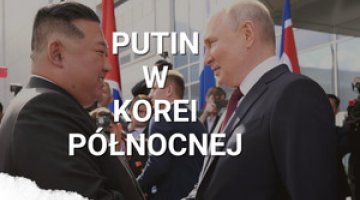Russia: stricter Internet censorship

On 7–13 March, the Russian parliament passed two acts, thus marking another stage in restricting the freedom of speech in the Russian Internet (Runet). The first one imposes a ban on spreading ‘fake news’ which pose a threat to “citizens’ health or life or create the risk of massive disruptions of public order or security.” The second one entails punishments for circulating information “expressing disrespect for society, the state, state symbols, the constitution or state government authorities in the Russian Federation in a form that offends public morality and human dignity”. The penalties envisaged under the new legislation include blocking a given website without a court order, fines (up to 1.5 million roubles, i.e. around US$23,000 in the case of ‘fake news’) or administrative arrest for up to 15 days (in the case of ‘offensive information’).
The State Duma is also proceeding a so-called Russian ‘sovereign’ Internet bill (it was passed on 12 February on the first reading). The draft provides proposals of actions and instruments to be employed that will make it possible to isolate Runet from the global network. The argumentation behind it points to a growing threat to the state’s cyber security , including the risk of disconnecting Russia from foreign servers by third countries, above all the USA. On 10 March people gathered in the centre of Moscow to protest against the plans to isolate Runet. The protest was organised by the unregistered Libertarian Party. 15,000 people protested in Moscow, and smaller protests were also seen in Saint Petersburg, Voronezh and Khabarovsk.
Commentary
- The broad definitions used in the legislation passed by the parliament enable any kind of interpretation. Given this and the lack of independence of Russian courts, both bills in fact make it possible to punish citizens for criticising the government in any form and for publishing any information in the media which discredits representatives of the government (including reports on corruption crimes) and which has not been confirmed by official sources. The formal extension of instruments that can be legally applied without court approval in fact means sanctioning many of the practices that have so far been used informally. Furthermore, the ‘fake news’ act enables the government to employ a different procedure depending on the status of a given Internet source. Those sources that have not registered as mass media outlets will be treated in a stricter manner and will be blocked without warning ( as with individual users’ social media accounts). Since both Russian legislation and the practice of applying legal regulations in Russia make it possible to continuously refuse to register ‘inconvenient’ media,the act will adversely affect above all independent media and may paralyse their operation.
- The introduction of the new instruments enabling selective repressions is aimed above all at making a ‘freezing effect’ and convincing Runet users to resort to self-censorship. The bills are yet another manifestation of the Russian government’s efforts to ‘seal up’ the information sphere in the face of deteriorating living standards, growing dissatisfaction with the Kremlin’s policy and falling public support and trust in Vladimir Putin (in March, the governmental public opinion research centre VTsIOM revealed that the president’s trust ratings had reached a record-low level of 32%).
- Further restrictions on access to information and sealing the safety valve of expressing protest online, may trigger anti-government sentiments among a section of the Russian public who have shunned engagement in political life so far. Many Russian Internet users are opposed to the legislative changes being pushed through by the government, even though their protest used to be mainly passive so far and was limited to writing critical comments online. However, as the proposed changes are passed on further readings and the scale of repressions expands, Internet users’ dissatisfaction may escalate, especially given the fact that public protests have become more numerous in Russia over the past few years which is proof of the increasing dissatisfaction of the Russian public with both their economic situation and the restriction of their political and personal liberties.




